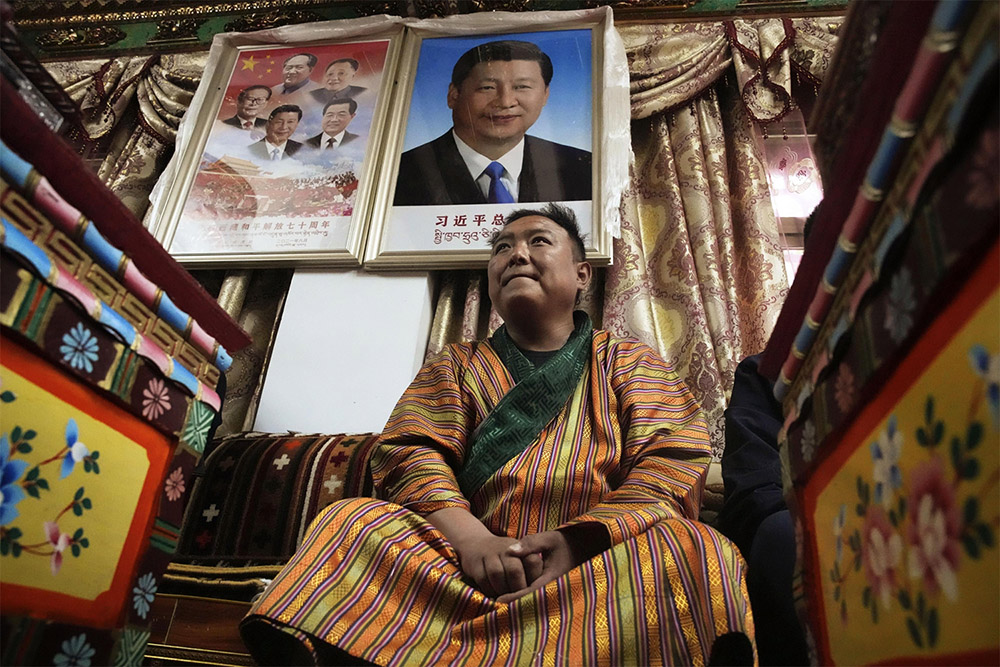(TibetanReview.net, Aug17’25) – In late Jun 2025, Chinese officials in Tibet gave a group of journalists and others a chaperoned tour of the region where media access is strictly controlled. Greeted by slogans urging ethnic unity and glorifying Chinese rule, they got a glimpse of life under Chinese government rule there. And what the slogans said, and the officials narrated were often contradicted by what the visitors saw, and heard, according to the mainichi.jp Aug 14.
As the plane touches down at the airport in Nyingtri city, the slogan “Long live ethnic unity!” could be seen written in massive Chinese characters along the base of a nearby mountain. Similar slogans could be seen on gates and other signage along the expressway that winds through green farmland beneath towering peaks, the report said.
It noted that slogans promoting ethnic integration were, in fact, displayed throughout the region.
Other slogans were stated to read, “The central government supports Tibet, and the whole country lends its support to Tibet,” and “Let’s learn the (Chinese) common language for ethnic exchange.”
Satoshi Tomisaka, a professor of Chinese affairs at Takushoku University in Tokyo who participated in the media tour has said the slogans are “effective in using language in a way that naturally makes people think it is good to be part of China.”
* * *
Despite the fact that the Han group makes up more than 90% of the PRC’s population, Beijing feels insecure and has an active policy to assimilate the 55 officially recognized ethnic minorities by force, the report cited critics as saying.
The report noted that last year, Human Rights Watch published a report stating that the Chinese government was forcibly relocating Tibetan villagers and herders from the autonomous region under the guise of “improving people’s livelihoods.”

The reporter found the group’s visit to the home of a person of the Monpa ethnic minority, relocated from their mountainous home region about two decades ago under the government-sponsored programme, to be revealing.
The man of the house repeatedly expressed his gratitude for the move, saying, “No one refused to relocate. Life has become more convenient, and our income has increased.”
On the large portrait of Chinese President Xi Jinping hanging in his living room, the man has said, “I bought it of my own accord. He is like a parent to us.”
Local government officials who accompanied the group has called it “a very ordinary family home.”
However, the report continued, the walls of the family home told a different story. They were adorned with commemorative photos of the family accompanied by Communist Party officials, demonstrating the family’s close affiliation with the party.
* * *
The group also saw construction of high-rise tenements and other buildings progressing in the city.
A woman who had moved there eight years ago from Guangdong Province, a coastal area in southeastern China, and runs a souvenir shop, has emphasized the friendly relationship between ethnic groups, saying, “There are many Han Chinese children at my children’s school. The Han Chinese and Tibetans are one family.”
However, a Tibetan woman who owns a restaurant in the suburbs has discreetly told reporters, “All the shops along the main thoroughfare are Han Chinese-operated.”
And despite the urban development, she has said, “My shop isn’t getting any more customers.”
And as the group of journalists left Nyingtri along the expressway, another slogan that reads more like a directive popped into view: “Let’s show our gratitude to General Secretary (Xi),” the report said.


